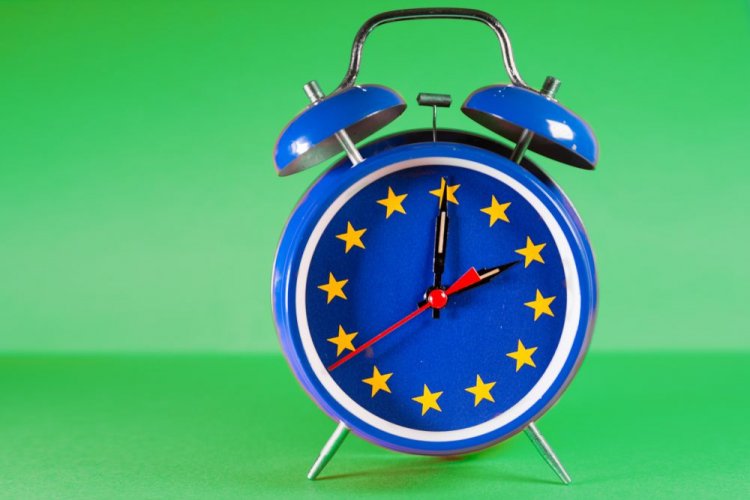The European Parliament will hold a decisive vote on the reform of the Emissions Trading Scheme (ETS), the carbon market and the EU's flagship climate policy, during the week of 6-11 June.
However, MEPs did not reach a general compromise on CBAM, he said EURACTIV.
The vote will end months of bidding between political groups on ETS reform and the parallel introduction of a carbon tax at the border to protect EU industry from environmental dumping.
The European Commission's plan to strengthen the ETS to reduce carbon emissions by at least 55% in the current decade and achieve net zero emissions by 2050 entails the abolition of free pollution permits for industries such as metallurgy, cement and the chemical industry, which currently receive most of their CO2 emission permits free of charge.
CBAM will be introduced in parallel as a way to protect EU industry from cheaper imports of pollutants coming from abroad. But lawmakers disagree on when to introduce CBAM instead of free CO2 pollution permits.
"We do not want CBAM to be too hasty because it has not been proven to work," said Peter Lise, a German Christian Democrat who is leading the EU's carbon market reform in parliament on behalf of the center-right European People's Party (EPP).
According to him, companies need time to invest in low-carbon technologies to remain competitive in global markets.
The European Commission has proposed to gradually abandon free allowances in the period from 2026 to 2035, the Parliamentary Committee on the Environment has voted for the completion date until 2030. However, the EPP believes that it is too early.
The Socialists and Democrats (S&D) and centrist groups Renew Europe are proposing to end in 2032.
Liz noted that such a period is three years ahead of the Commission's initial proposal. The EPP does not support this compromise and proposes the gradual introduction of CBAM from 2027 and the abolition of free allowances by 2034, in line with the proposals voted by the Parliament's Industry Committee (ITRE). He explained that other political groups were not ready for a more cautious start by 2026.
"There will be a controversial vote, and we'll see who gets the majority," Liz said.
Avoiding "price shock"
According to EPP , EU industry needs more time to adapt due to Russia's war in Ukraine, which raises energy prices for European consumers and businesses.
"In 2024, we will still be in crisis and replace Russian gas," Liz said.
He also explained that until then, Europe will still be dependent on fossil fuels and will have to use coal instead of Russian gas.
The proposed "relocation" of the ETS aims to gradually reduce carbon emissions by 2030 in line with the bloc's higher climate ambitions.
"Rising prices at this point will lead to a price shock for citizens. That's why we fought so hard against this relocation," said Liz.
Pascal Canfin, a French MP from Renew who heads the parliamentary committee on the environment, said the proposal to relocate had been agreed with the Renew centrist group in parliament. The offer will help avoid price shock in the very short term.
"As for the ETS reform, we are starting with slightly smaller ambitions, because today we have very high energy prices," Kanfin said.
He also added that the initial decline in ambitions will be offset later as Europe approaches its 2030 climate target. However, this compromise proposal is not supported by the S&D and the Greens, which means that decisions will be made by MEPs in next week's plenary vote.
"Discounts on green exports"
Another proposal, supported by Renew and S&D, is to introduce a system of "green export discounts" for European producers of environmentally friendly products, such as low-carbon steel or aluminum.
"The problem with CBAM is that you don't cover exports. That's why we've created a mechanism that will focus only on green exports," Canfin said.
He added that exporters would lose the protection they now enjoy from the free CO2 distribution system under the ETS. The system offers free CO2 emission permits to only 10% of the best-in-class low-carbon manufacturers. Permits will be issued only for the part of exports that is related to decarbonisation.
The move, opposed by the Greens, was aimed at reassuring EPP , which insisted on further protection of European industry.
But in EPP rejected the idea, saying it could be challenged by World Trade Organization (WTO) rules, which prohibit discriminatory practices against foreign producers. After all, it would be difficult for the WTO to distinguish the "green" share of EU exports from another. Position EPP is to grant free export permits and allow the Commission to carry out a thorough evaluation before it enters into force.
CBAM "landing area" in the field of view
Despite differences between political groups, the parliament's leading lawmaker on the CBAM proposal, Mohammed Chahim of S&D, said he was confident the positions were converging.
"We know what the landing zone in the parliament will be like," Chakhim said.
He explained that this includes phasing out free benefits until 2032 and extending the scheme to chemicals such as polymers and plastics.
He also hoped that other countries would follow suit and adopt similar carbon tax schemes at the border, so that all countries in the world would pay the price for their carbon emissions, creating a level playing field.
We will remind, voted in the European Parliament for CBAM and ETS reform.
As EcoPolitics reported earlier, Eurofer criticized the intention of the European Parliament change the emissions trading system.





